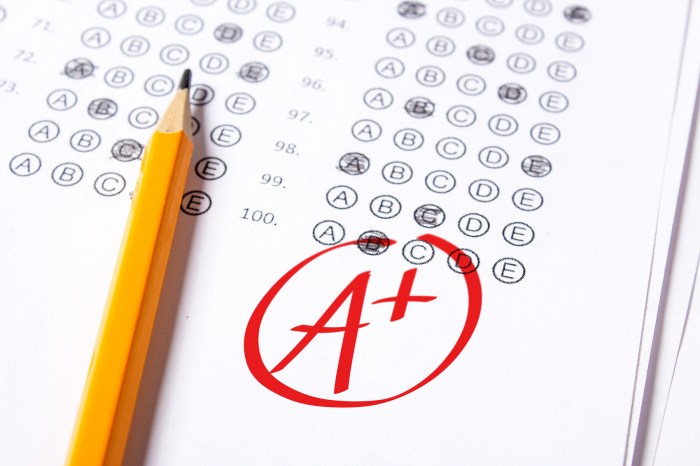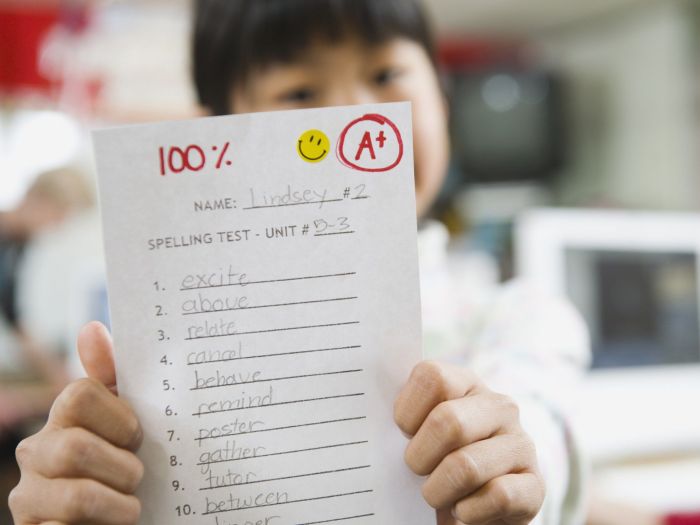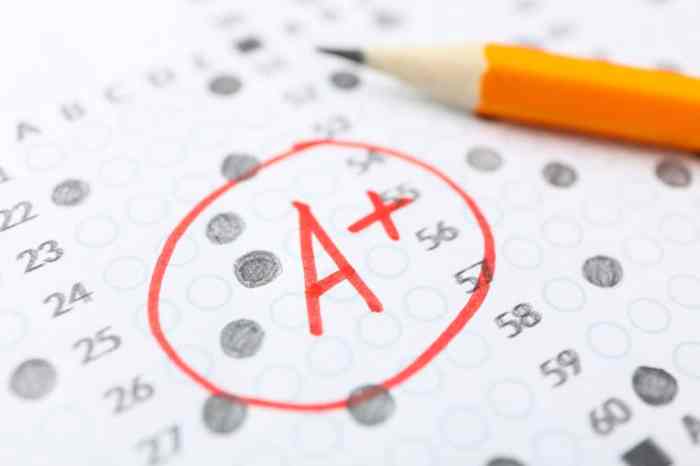I have to get good grades to impress my grandparents – In the realm of education, students often face the pressure to excel in their studies, driven by a desire to impress their grandparents. This article delves into the multifaceted nature of this pressure, exploring its origins and potential impact on academic performance.
Furthermore, it emphasizes the significance of intrinsic motivation and provides practical strategies for fostering a genuine interest in learning. By embracing effective goal-setting, time management, and study techniques, students can navigate the path to academic success while maintaining a healthy relationship with their grandparents.
Understanding the Pressure

The pressure to impress grandparents with good grades stems from a desire to meet familial expectations and gain their approval. These expectations can arise from cultural norms, personal beliefs, or a sense of obligation to uphold the family’s reputation.
Such expectations can have a significant impact on academic performance. Students may feel anxious or stressed, leading to procrastination, reduced concentration, and diminished motivation. Additionally, the pressure to conform to expectations can stifle creativity and independence in learning.
Intrinsic Motivation
Intrinsic motivation refers to the internal drive to learn and achieve without external rewards or pressure. Fostering intrinsic motivation is crucial for academic success, as it leads to sustained effort, increased engagement, and a genuine love for learning.
- Strategies for developing intrinsic motivation:
- Connecting learning to personal interests and goals
- Providing opportunities for exploration and discovery
- Encouraging self-reflection and setting personal challenges
- Role of teachers and parents:
- Creating a positive and supportive learning environment
- Providing encouragement and feedback that focuses on effort and progress
- Modeling intrinsic motivation by demonstrating a passion for learning
Goal-Setting and Planning, I have to get good grades to impress my grandparents
| Effective Goal-Setting Techniques |
|---|
| SMART Goals: Specific, Measurable, Achievable, Relevant, Time-bound |
| Break down large goals into smaller, manageable steps |
| Set realistic deadlines and track progress regularly |
| Use a planner or calendar to organize tasks and assignments |
- Tips for creating a realistic study plan:
- Allocate specific time slots for studying
- Prioritize tasks based on importance and urgency
- Include breaks and rewards to maintain motivation
Time Management and Organization
Effective time management strategies help students optimize their study time and reduce stress.
| Study Methods |
|---|
| Spaced repetition: Reviewing material at increasing intervals to improve retention |
| Active recall: Attempting to recall information from memory without referring to notes |
| Pomodoro technique: Alternating focused study sessions with short breaks |
- Tips for creating a structured study environment:
- Choose a quiet and distraction-free study space
- Organize study materials and notes in a logical way
- Minimize interruptions during study sessions
Study Techniques and Resources
Different study techniques cater to various learning styles. Identifying and utilizing the most effective methods can enhance understanding and retention.
- Visual learners:
- Using diagrams, charts, and mind maps
- Creating flashcards with images or symbols
- Watching educational videos
- Auditory learners:
- Listening to lectures or recordings
- Reciting information aloud
- Participating in discussions or study groups
- Kinesthetic learners:
- Using hands-on activities or simulations
- Building models or creating physical representations
- Engaging in role-playing or demonstrations
Online resources and tools can supplement traditional study methods and provide additional support:
- Educational websites and platforms
- Online tutoring and mentorship programs
- Study apps and software
Peer study groups and collaboration can enhance learning through shared knowledge, diverse perspectives, and accountability.
Coping with Stress and Anxiety
Stress and anxiety can negatively impact academic performance by impairing concentration, memory, and motivation.
Physical and mental effects of stress:
- Increased heart rate and blood pressure
- Muscle tension
- Difficulty sleeping
- Irritability and mood swings
Relaxation techniques to manage stress and anxiety:
- Deep breathing exercises
- Meditation or mindfulness practices
- Yoga or tai chi
- Spending time in nature
| Mental Health Resources for Students |
|---|
| University counseling services |
| Online therapy platforms |
| Peer support groups |
Communicating with Grandparents
Open and honest communication with grandparents is crucial for building a supportive relationship and addressing concerns.
- Tips for students on expressing feelings and concerns:
- Choose the right time and place for the conversation
- Be respectful and avoid confrontational language
- Explain the impact of their expectations on academic performance
- Suggest alternative ways to show support and encouragement
- Role-playing exercise to practice effective communication:
- Student: “Grandpa, Grandma, I appreciate your support, but I feel a lot of pressure to get good grades. It makes me anxious and stressed, which affects my studies.”
- Grandparent: “We love you and want what’s best for you.
We understand that grades are important, but we also want you to be happy and healthy.”
- Student: “Thank you for listening. I would really appreciate it if you could support me by encouraging my interests and providing emotional support.”
FAQ Resource: I Have To Get Good Grades To Impress My Grandparents
How can I balance the pressure to impress my grandparents with my own academic goals?
Open and honest communication with your grandparents is crucial. Explain your aspirations and concerns, and work together to find a balance that aligns with your needs and their expectations.
What are some effective study techniques that can help me achieve good grades?
Spaced repetition, active recall, and elaborative encoding are proven study techniques. Incorporate these methods into your study routine to enhance retention and improve your understanding.
How can I manage stress and anxiety related to academic pressure?
Engage in regular exercise, practice relaxation techniques such as deep breathing and meditation, and seek support from friends, family, or a therapist if needed. Remember that stress management is essential for maintaining overall well-being and academic success.


